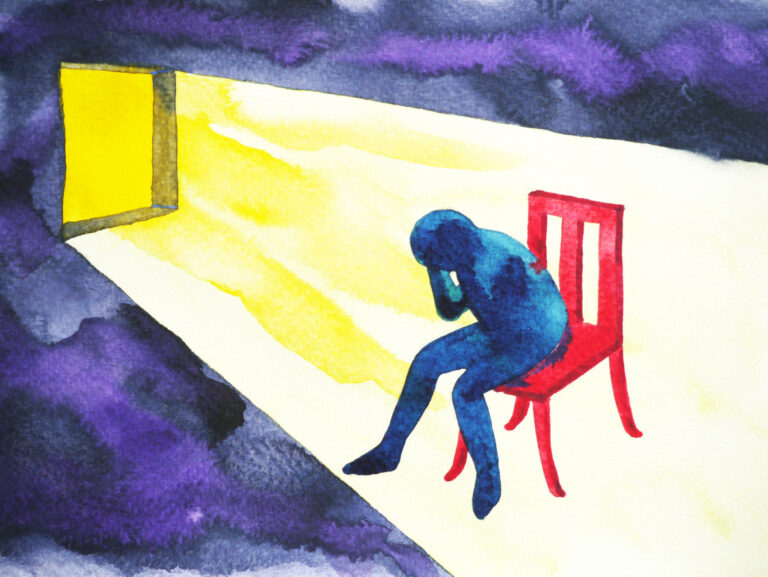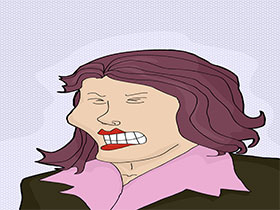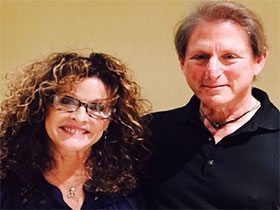Why You Don’t Like Your Therapist: No one is the same.
Finding a Therapist That Fits You is Difficult, Like Dating.

How does one find a great therapist? What is a great therapist? Why do clients like some therapists, dislike others, and say some are effective or life-changing, and others make no difference? There’s a lot to these questions.
Personal preferences are involved — a therapist’s personality, knowledge, and therapeutic philosophy. Passion for what they do could be an issue. Some therapists aren’t that into what they do, and it shows. For example, my clients used to tell me about a female marriage therapist in our building who regularly slept during their sessions. Hmm.
Some therapists aren’t solid themselves … they may be anxiety-ridden and afraid to rock the boat with a client. Some are bland and unexpressive. Some are a bit nutty or eccentric. Some are so smart, amazing, and warm that you will thank the heavens they came your way. Many factors affect a client’s professional relationship with a therapist and influence whether a therapist is a good fit. What concerns me is that too many people try one or two, don’t like them, and give up on therapy altogether. You wouldn’t date two or fewer people and give up on dating, would you? Go to a different therapist, and keep looking for that better fit.
Things to consider when looking for a therapist.
Therapists and counselors have a variety of styles and training, and how we are trained influences us and how we do our jobs. A psychologist, social worker, mental health counselor, pastoral counselor, Christian counselor, and marriage and family therapist all work from different philosophies and schools of thought. They can be as different as night and day. Many people assume I am a psychologist, for example, but I am as far from that as one can get and would not want to be one. I am a marriage and family therapist (MFT). The MFT thinks systemically about the whole family and each member’s influence on everyone else. We are specialists and the only mental health professionals trained to treat children, individuals, couples, and families; a psychologist usually tests people and writes psych evaluations, and if they do clinical psychologist work, they see one person at a time. The psychology training is generally steeped in older, more conservative theories like psychoanalysis, behavioral therapy, and Aaron Beck’s cognitive behavioral therapy.
A counselor differs from a therapist and is usually used for brief, situational issues; a therapist can and will dig deep. We’re healers and probably more expensive, as therapists are considered specialists.
Clients don’t usually know the difference between our different educations and the type of therapy that would serve them best. They often randomly choose someone who accepts their insurance, lives near them, or is inexpensive. I hate to say it, but there is usually a reason a therapist is inexpensive or accepts insurance, reasons like they aren’t experienced and/or haven’t been able to build a client base, feel guilty about charging what they’re worth, and maybe they’re not so great at what they do. This does not mean that all therapists who accept insurance are less than.
I used to take one type of insurance to help my clients afford their sessions, but I gave up after five years because the headaches eventually outweighed my charitable inclinations. When a therapist is expensive and doesn’t accept insurance, that can indicate high demand for their services, and often, they have higher prices because they have spent a fortune on additional training. Good therapists are worth what they charge; they can make a singular difference in helping people grow and become mentally and emotionally healthy. When it comes to marriage, a good therapist can make the difference whether yours makes it or not.
Ask your friends who they recommend; most people are very opinionated about the therapists they’ve worked with. I say this with a chuckle to myself because some people love me as a therapist, and others do not, which shows you it’s all about what personally works for you. Most of us understand that we won’t be the right person for everyone.
Another thing to consider is if the therapist is trained in trauma interventions. I wouldn’t go to the one who wasn’t because I would want healing at the root level. But if you’re there to knock a few ideas around or talk about your new dating mate, maybe you don’t need that.
Think about the type of therapist you want and email or call and talk to them for 10 minutes.
Most therapists will talk to a client on a short phone call or email briefly to answer questions about their education, philosophy of counseling, the models they use, or anything having to do with the therapy process. They will not want to hear your life story on this phone call and will not give you free advice. A therapist’s time and insight is how they make their living, so don’t infringe on this by asking for a complimentary session to see if you are a fit. You must pay for a session to determine if you are a fit.
If you visit with a potential therapist, you’ll get a sense of their personality. Ask them if their style is gentle and nurturing or to the point. Ask, too, if they will tell you what they see when they see it, will they keep it to themselves? What is their approach? Do they participate actively in the conversation with curiosity and questions, or do they let the client lead? You need to have a sense of the style of therapist you need — directive, educational, hand-holding, validating. What is it you want to achieve? What are the most important factors to you? Why are you going in the first place? What kind of therapy relationship do you want and need?
To that end, some clients may need and want a gentle, quiet therapist who validates their experiences and is always on their side. In contrast, others desire direction and honest input and welcome the chance to be told they are heading in the wrong direction and told what the healthier choices might be. It’s too bad we therapists can’t be rated with a compassion and candidness meter, which would be helpful to people looking for good therapy sessions.
Back when I first started going to therapy, around 1986, I had hit enough life bumps that I wanted someone to tell me if I was crazy, if everyone else was crazy, or if all of us were crazy. I also wanted someone to tell me what it was to be a healthy adult. I needed direction and goalposts to head toward because if life was a football game, I was on the fourth down and my own one-yard line. Winging it wasn’t working, and I needed some good coaching, teaching, and understanding. Because of my experience, that is how I approach therapy today. I have learned that intelligent, successful people know little about relationship skills.
I was fully prepared to be told that I was nuts and there was no hope for me, and I was sincerely surprised when therapists insisted that I wasn’t. Were they just being kind, I wondered? I concluded that it would serve no purpose for them to lie to me about not being crazy, but it took years for me to finally accept that I was the funny, kind, intelligent, and good-hearted person they said I was –at least most of the time. Like many others with a problematic other self, I had a part of my personality that was allergic to putting up with people’s bull and did not suffer fools, and if people pushed a little too hard, they would be told my thoughts about that. Finding the best way to utilize her without scaring the hell out of everyone is something I still work on. She is the part of me that is ambitious and pushes me toward my life goals, and I don’t want to lose her altogether.
In my opinion, a great therapist calls these types of things out with a client and doesn’t act like everything about the client is terrific if certain parts of them tend to be bridge-burners or self-sabotaging. We all have parts of ourselves that we do not like. Embracing and coming to understand our outcast selves is as important as getting to know the parts of us that are our own best gifts and assets. Ignore the ugly parts and ignore the gifts they also bring, and they become more toxically invasive. An excellent therapy experience brings these things to light and explains how to use them to your advantage.
The best therapists I’ve had told me when I was lying to myself, was full of crap, or listening to part of myself that was misguided and setting me up for a setback. One even said, “I guess you’ve got some more pain to experience before you finally learn how to handle these types of things differently.” Ooph, he was so right. People can be miserable as hell but won’t change until they have reached the point of misery that is unbearable for them. I finally got there and turned my life around, thank goodness.
Finding the right therapist is a crapshoot. Here’s something that helps …
Word of mouth may be the best way to find a good therapist. When I’m recommended as a new therapist to clients, I know they have already been forewarned by previous clients that I don’t mess around, waste time, or mince words because they tell me. I am a baseball catcher who calls them as I see them. Although compassion and kindness in therapy can be appropriate and helpful, and I do have that side of me in the therapy arena, I usually look at human behaviors that destroy a family in couple’s therapy, which is deadly serious. To me, there’s no time to waste. The people doing these things are clueless about the damage they manifest. How does one sugarcoat that? I have to tell 30, 40, 50, 60, and sometimes 70-year-old adults that they behave like toddlers at a toddler smackdown because I want them to understand how ridiculous it is. I often see couples whose faces suddenly remind me of my son and daughter bickering in the back seat of my car 30 years ago, and I tell them so. Then, the lessons on how to behave like an adult begin. “Don’t worry,” I tell them. “I used to act just like you. It is indeed possible to grow up. It’s a learned skill.”
Just because you have terrible relationship skills does not mean you are a bad person; most of my clients have good intentions in their relationships, but they don’t have the ability and awareness to express themselves in a way that people can receive accurately. The same is true about listening and responding appropriately. That so many people are so terrible at this does mean that our culture failed you by not teaching you anything about it in school, and you probably came from a family that had terrible relationship skills themselves, so how could you know? Still, clients often find it painful to be told they are dysfunctional in any way, even though all of us are.
If I tell you that your tennis swing is dysfunctional, meaning it’s not working, I’d hope you wouldn’t take it personally, and maybe you’d laugh and be ready to learn how to improve it. No one gets on the tennis court initially and gets it right. However, almost everyone I work with takes it personally when I point out dysfunctional human behaviors; they respond as if I have called them horrible, valueless human beings when that is the opposite of how I feel. Explaining the errors to people is essential, but I hate that it causes them painful feelings.
Humans are sensitive to perceived negative feedback and often react with defensiveness because of old trauma wounds that have not been healed. If your self-esteem is on the floor and someone even hints at the fact that there is something wrong with you, you are going to feel excruciating emotional pain and negative feelings every single time. That in itself is one of the first things that needs work. How else would we ever be able to get anyone on the track to healthy human behavior if we don’t point it out and tell you how to do it more healthily?
This is why solid self-esteem and mental and emotional well-being are necessary before getting into serious relationships. Because when you start complaining about each other to each other, you will feel emotional pain and go into the fight-flight, freeze, or fix response, where relationship damage will occur. Oh, I wish people would get healthy before entering into serious relationships.
The most important thing about a therapist.
In the therapeutic relationship, the most important thing is to have chemistry with your therapist and trust that they know what they’re talking about. I like to joke around and tease about ridiculous behaviors in the therapy room, but I will get deadly serious if needed. I feel confident in what I do and how I do it, which is important to my clients. It stuns me when I go to therapeutic conferences, and the discussion is about how frightened and insecure some therapists are. I guess therapists are human, so you will find all kinds, but it’s a therapist’s job to know what they’re doing and to make their clients feel they are in good hands. The education and supervision process we go through is meant to ensure that.
The idea that a therapist isn’t supposed to care and bond with a client is nonsense, by the way. It’s impossible not to care when they become vulnerable and share things with you that they share with nearly no one else. Sharing stories of our lives is how human bonds are built. I also share parts of my life with them and believe in that as a therapeutic tool. Old-school therapists would die before they would do that, but I feel they are missing an opportunity to show their clients that they are a human who struggles, too, and not some god or goddess of mental health that has it all figured out. Many therapists appropriately call themselves wounded healers because we walked a path of pain and healing that led us to want to be an instigator of that for others.
We are all taught the current theories of therapy and then end up doing therapy our way.
The way we were taught to do therapy in school didn’t work for me in its entirety. Some pieces and parts of it did, and so I took parts of this theory and that theory and pieced together a mish-mash of skills that fit my personality and thinking and started from there. I sought out training beyond school in my search for what I felt was a right fit for what my clients were looking for. I concluded then, and I still believe now, that the average human being does not know a damn thing about how to have healthy relationships and must be taught. I sought out theories after graduation that shared that viewpoint.
Many of my classmates were by the book and picked a theory, and that was that. Teaching, directing, and lecturing a client were verboten in the graduate school clinic. You have to let people figure things out for themselves through exploration or try to show them that their horrible lives are actually pretty favorable; they need to look at things differently. Some of that is okay, but you have to know when a client needs more than that, like I did many years ago, and in my experience, most need more. Most want to know exactly what it is to be a healthy human being and healthy in relationships, and that requires teaching. The great thing is that what I teach makes sense to them, and when they begin to utilize it, they feel better, and their relationships improve. Interestingly, the latest theories in therapy are trending toward more educational and directive approaches. Do you know why? Because clients love and respond to it.
Once a therapist gets their license to practice, they can keep or let go of what they were taught, put together a soup of theories and interventions, or do it however they want. We must adhere to therapeutic ethics that protect ourselves and our clients and provide a confidential and safe place for people to express themselves. Still, beyond that, a licensed therapist can do what they want.
I appreciate creative therapists who try different things, think out of the box, and can flex based on what a client needs and responds to. There are so many types of therapy that every person can surely find someone who fits what they are looking for. I believe every person needs therapy, and every person should have it. I also wish it was readily available and affordable for everyone. That may be my next battle.
Becky Whetstone, Ph.D., is a licensed Marriage and Family Therapist in Arkansas and Texas* and is known as America’s Marriage Crisis Manager®.
She is a former features writer and columnist for the San Antonio Express-News, and is the author of “I (Think) I Want Out: What To Do When One Of You Wants Out” published by HCI Books, distributed by Simon and Schuster, and to be released February 4, 2025.
She has worked with thousands of couples to save their marriages. She can work with you, too, as a life coach if you’re not in Texas or Arkansas. She also has a YouTube Channel called Marriage Crisis Manager where she talks about relationships. She has a telehealth private practice as a therapist and life coach via Zoom. To contact her, check out www.MarriageCrisisManager.com. Also, here is how to find her work on the Huffington Post. Don’t forget to follow her on Medium so you don’t miss a thing!
- For licensure verification, find Becky Whetstone Cheairs.
- Marriage Crisis Manager is an Amazon affiliate and may receive a small fee if you purchase recommended books from our links at no extra cost to you.
- If you liked this, you might also like …
- https://marriagecrisismanager.com/marriage-therapist-married-four-times-counts-her-blessings/
If you liked this, you might also like …
Marriage Therapist Married Four Times Counts her Blessings






